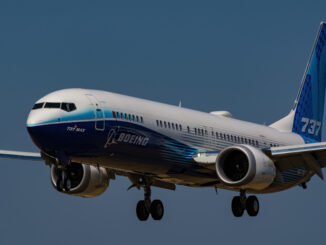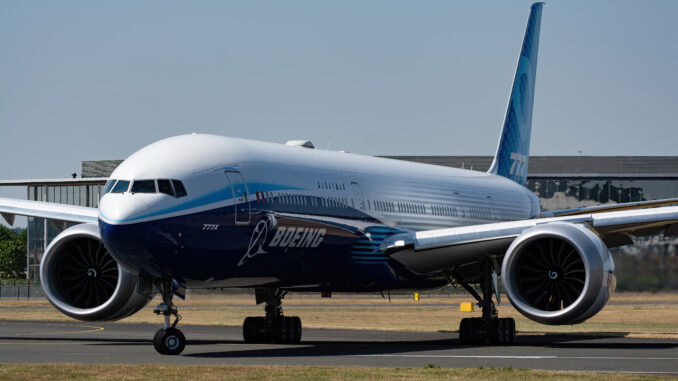
One of the star attractions of this year’s Farnborough International Airshow is the Boeing 777X, or to give it its proper name, Boeing 777-9 and we got the chance to get on board and check out Boeing’s latest giant for ourselves.
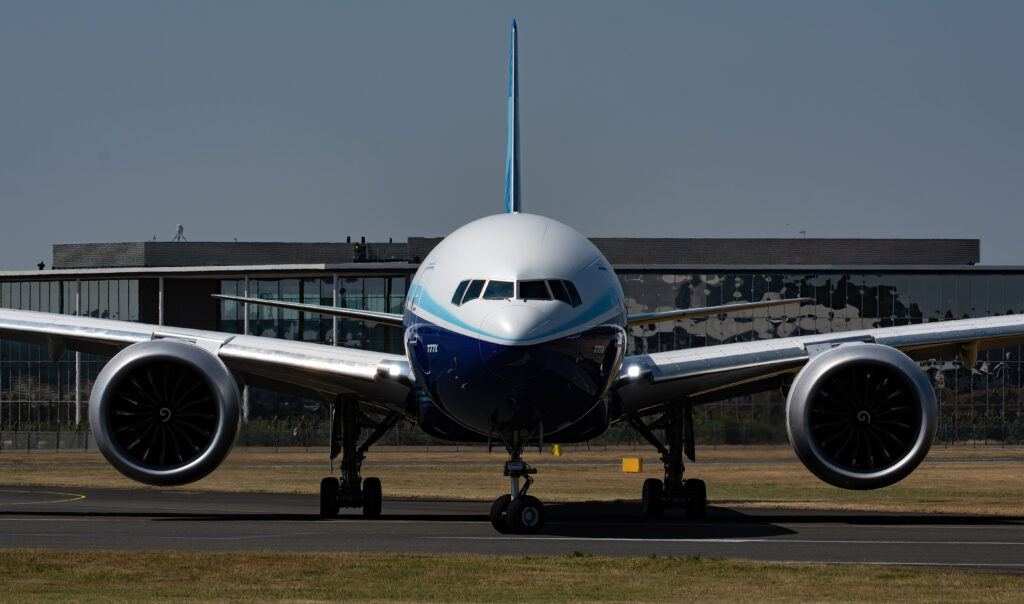
As soon as you step on board the 777-9 you immediately become very aware that this is a test aircraft, from the signs warning engineers not to discuss their data in certain areas through to the flight test stations and water tanks.
This particular aircraft, which is on both static display and flying the demonstration, is the 1st 777-9 and as such has already accumulated over 11,000 flight hours.
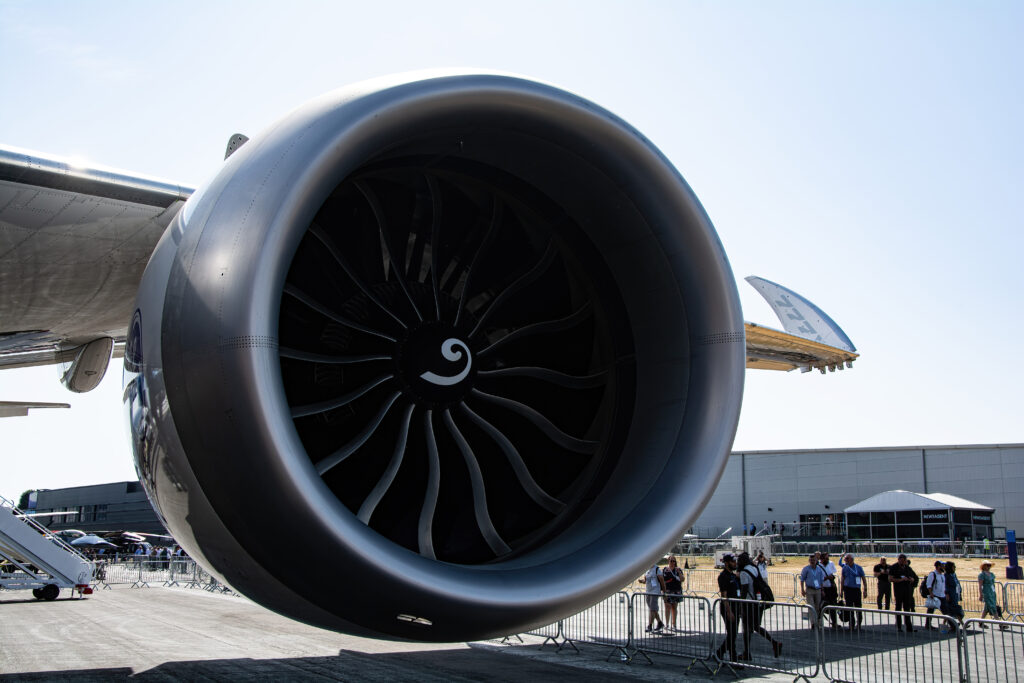
Externally, the aircraft looks much like legacy Boeing 777s with its widebody and classic lines, but the first thing the eye is drawn to are those wingtips! Largely as when parked, they point straight up because on the ground, they fold up to allow the 777X to taxi and move around at conventional airports that can handle existing 777s despite having a 10m wider wingspan
At 76.2 metres long, the 777-9 is also 2.2 metres longer than the 777-300 (74 metres) making it Boeing’s longest aircraft.
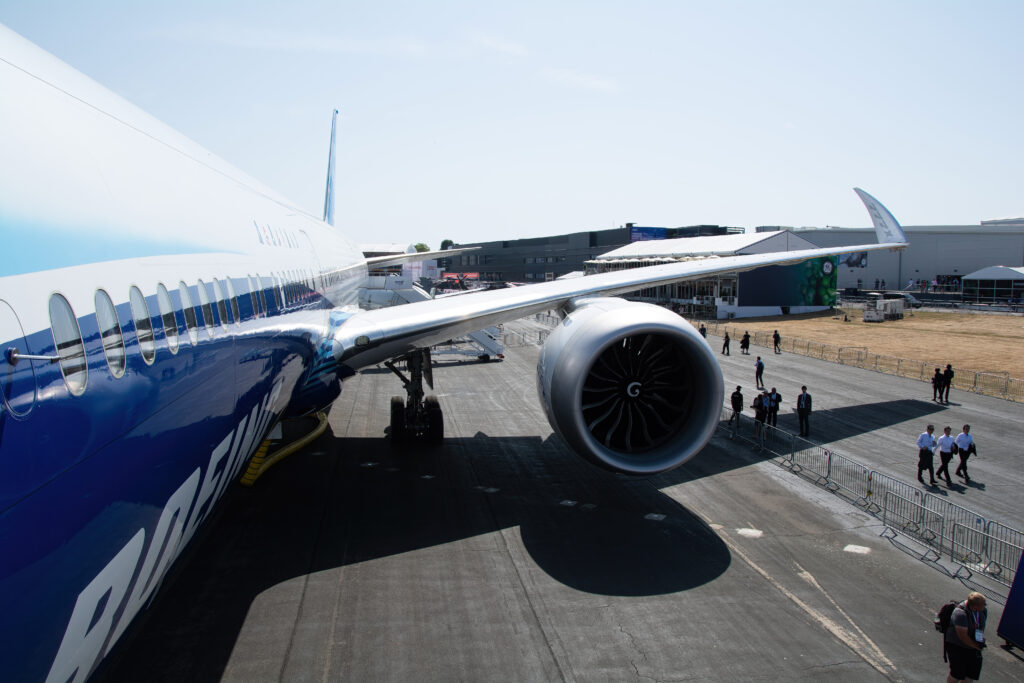
The aircraft is powered by two GE9X engines which like their predecessors the GE90 are high-bypass turbofan and produce 110,000 lbf of thrust each. They use 10% less fuel.
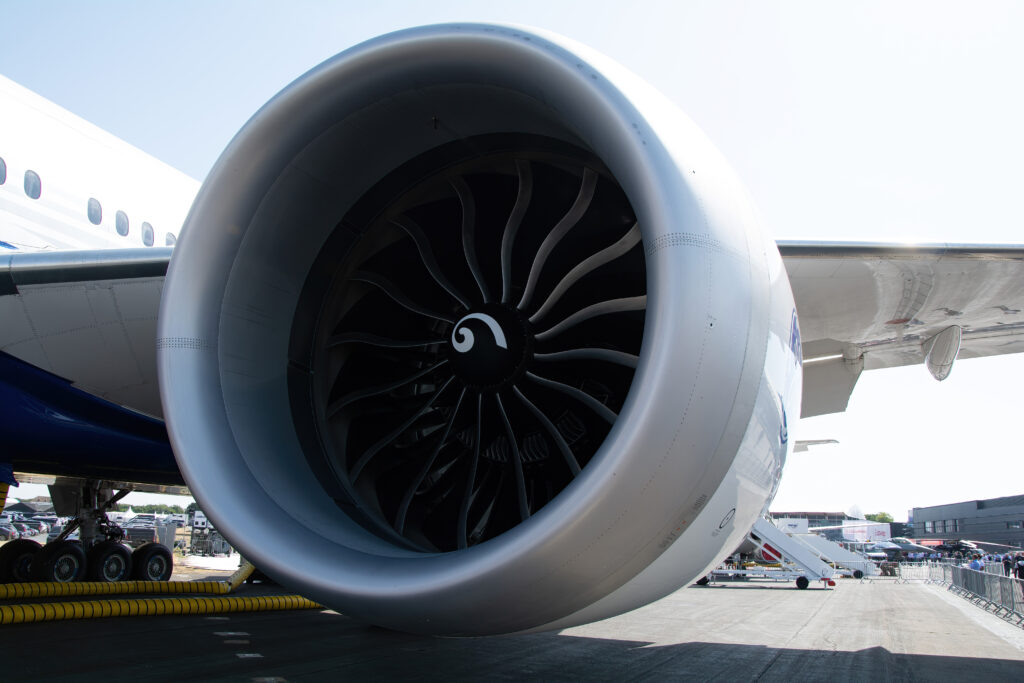
Inside the aircraft, the flight deck is all digital – all glass with the type of wide LCD screens first seen on the Boeing 787. The test aircraft has additional equipment installed but we are told that the layout is pretty much production ready.
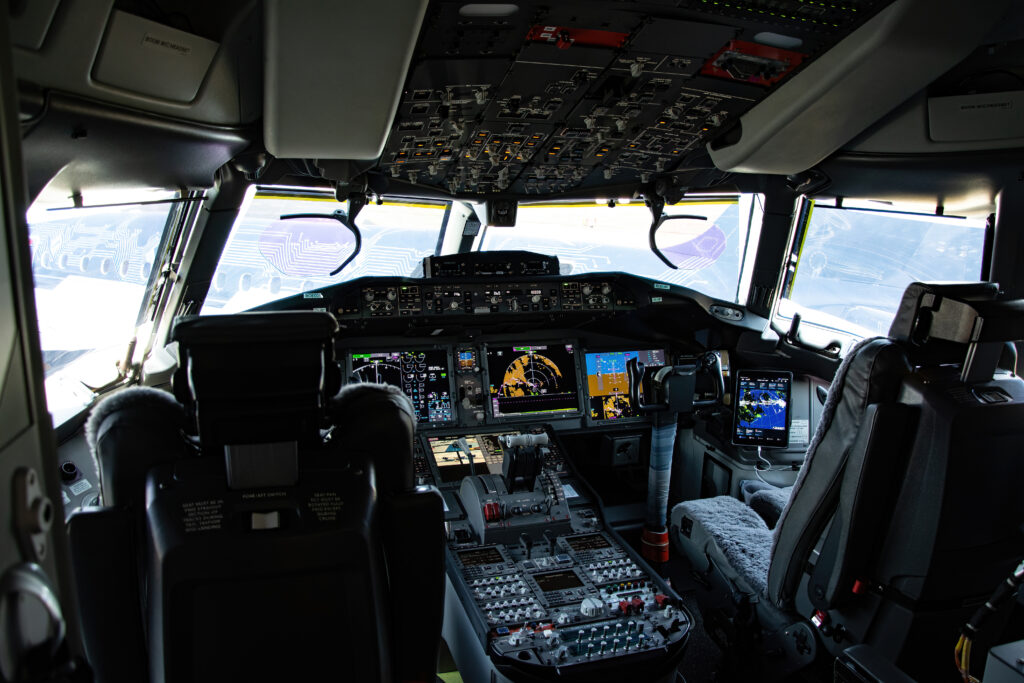
The cabin of the 777X is the same external width as the current 777 however thanks to thinner cabin walls and insulation innovations brought from the 787 family, the economy section can now sit 10 46cm wide seats abreast compared to 9 on the legacy 777.
In a two-class configuration the 777-9 can seat up to 426 passengers, with the smaller, but longer range, 777-8 carrying 384. In a three-class configuration, it’s 349.
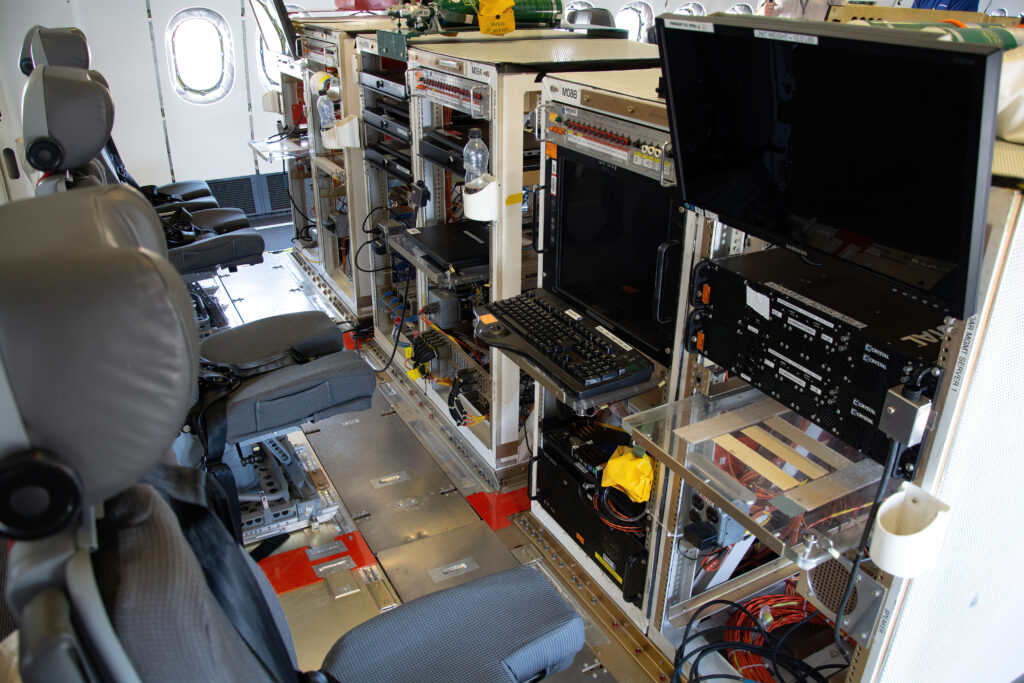
The flight test aircraft is full of water tanks to simulate load changes and of course flight test stations with very few seats so you really do get a sense of just how big this aircraft is.
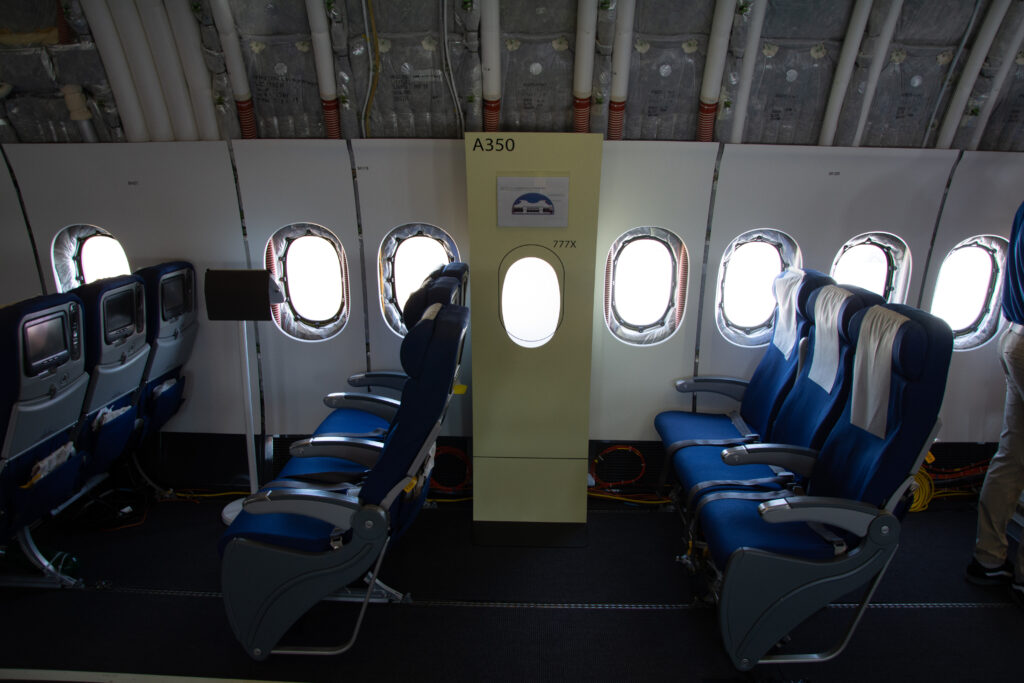
As mentioned before, this aircraft was also performing the flying demonstration at Farnborough and was the one that brought people flocking to the flight line.
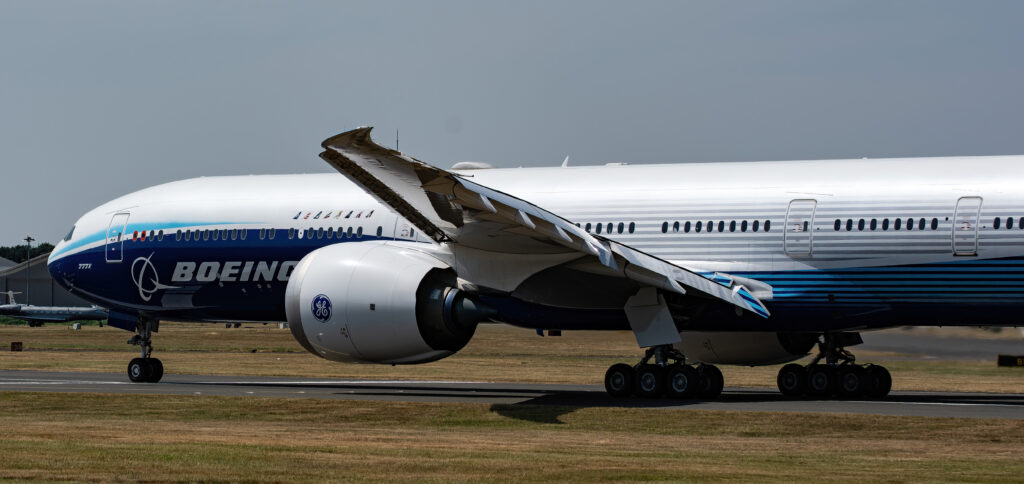
From its near vertical climb out to its dynamic and tight display this pilot performed manoeuvres that seemed impossible in an aircraft of this size. The wingover looked spectacular and certainly seemed to go beyond 90 degrees, we did ask the pilot what the bank angle was but he politely declined to say with a subtle wink…
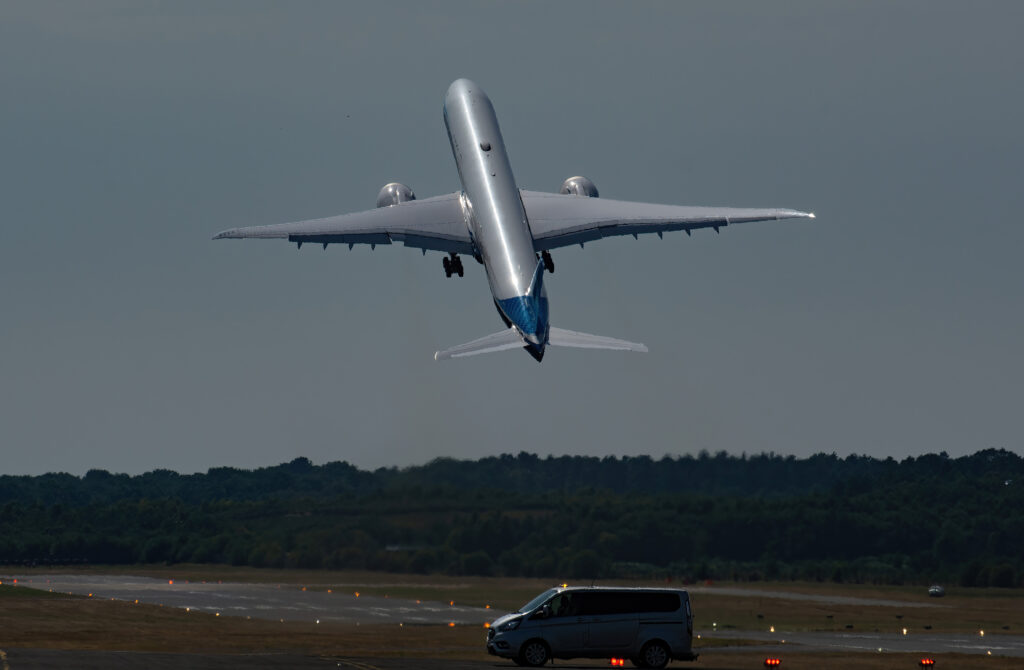
Upon landing, the 777-9 demonstrated how the wing tips fold automatically and although it looks slick and easy, the mechanics behind are hugely complicated given the importance of ensuring they only fold when they are meant to!
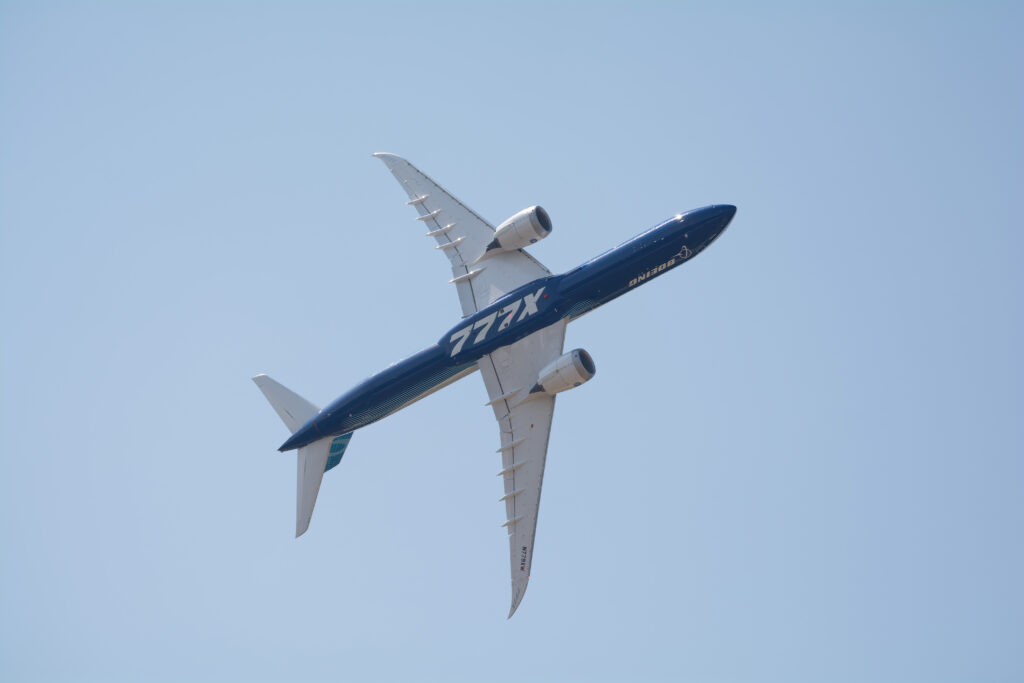
Overall, the Boeing 777-9 didn’t fail to impress and it’s clear to see why airlines, including British Airways, are keen to get it into the fleet. It builds on the impeccable reputation of the existing 777 and is popular with pilots, crew and passengers alike.
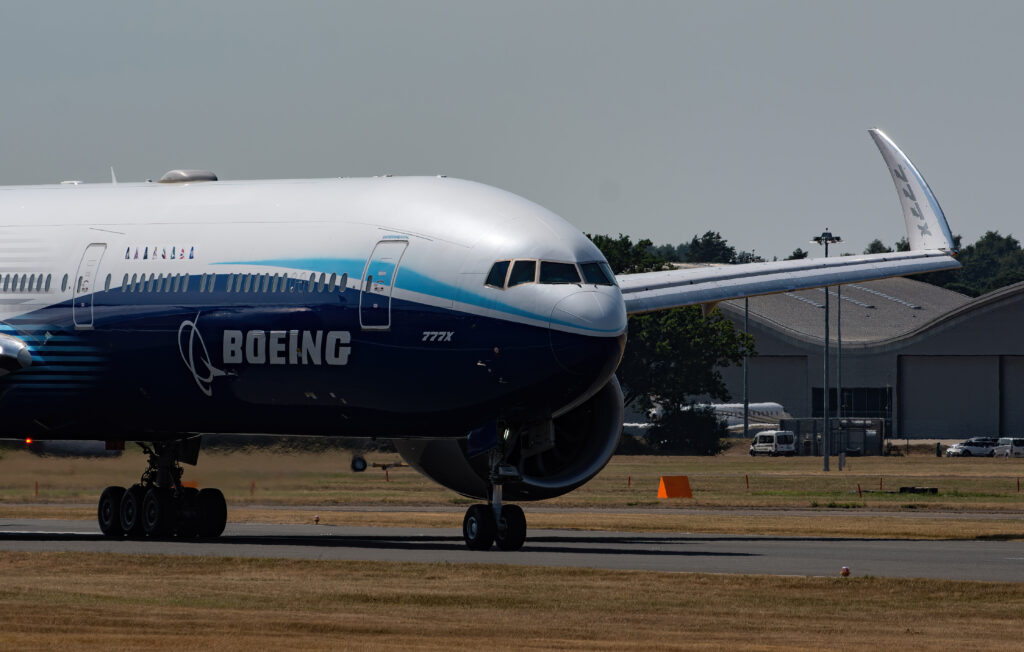
We cant wait to see it fully in service in 2025 with launch customer Lufthansa.
Special thanks to Boeing for the invitation to tour the 777-9
Flight Display Highlights
Technical Specifications Boeing 777-9
- Length: 251 ft 9 in (76.73 m)
- Width: 20 ft 4 in (6.20 m) (external)
- Wingspan: 235 ft 5 in (71.75 m), 212 ft 9 in (64.85 m) folded
- Engines: 2x GE9X Turbofan
- Thrust: 110,000 lbf (489 kN)
- Take-Off Weight: 775,000 lb (351.5 t) Max
- Range: 7,285 nm / 13,500 km
- Seats two-class: 414 (42J + 372Y) to 426
- Seats three-class: 349 (8F + 49J + 292Y)
- Cargo capacity: 8,131 cu ft (230.2 m3)
- Max payload: 162,000 lb (73.5 t)
- Price: $442.2 million (list price)


